#maria konnikova
Text

7 notes
·
View notes
Text
''What Homes is really telling Watson when he contrasts seeing and observing is to never mistake mindlessness for mindfulness, a passive approach with an active involvement. We see automatically: a stream of sensory inputs that requires no effort on our part, save that of opening our eyes. And we see unthinkingly, absorbing countless elements from the world without necessarily processing what those elements might be. We may not even realize we’ve seen something that was right before our eyes. But when we observe, we are forced to pay attention. We have to move from passive absorption to active awareness. We have to engage. It’s true for everything—not just sight, but each sense, each input, each thought.''
-Maria Konnikova, Mastermind
1 note
·
View note
Text
"How does someone in the public eye ever hope that deceptions of this magnitude will go undetected? What explains con artists’ impulse to deceive, repeatedly, even as the fictions they tell become harder to maintain? These questions have fascinated psychologists for years—and we’re beginning to find answers."
"In three years of research on con artists—interviewing them, spending time with them, submitting them to psychological questionnaires, and reading any available psychological literature on them—I found that con artists tend to exhibit some combination of the so-called dark triad of personality traits, which have been studied in deceptive behavior more broadly: psychopathy, narcissism, and Machiavellianism. Although psychopathy tends to get a lot of attention—few things are as eye-catching as the word psychopath—the trait that, to me, exemplifies the psychology of the con, and explains the hubris behind a pyramid of lies as high as Santos’s, is narcissism."
"Narcissism in the case of the confidence artist is not narcissism in the sense that you and I might use when talking about someone who feels that the world revolves around them. It’s an almost pathological hubris; the thought that you haven’t gotten caught yet, so you never will get caught. The sense that, out of everyone, you deserve it the most, whatever it might be. True narcissism lets you rationalize all manner of sin; it’s self-delusion taken to an extreme."
"Narcissism breeds, as well, a self-reinforcing cycle: The more you lie, the more entitled you feel—and the more qualified. In 2019, an international group of psychologists—Francesca Gino of Harvard, Wiley Wakeman of the Stockholm School of Economics, and Celia Moore of Bocconi University, in Italy—ran a series of studies that looked at cheating’s effects on self-image. Would people who cut corners on a task feel more or less confident in their skills afterward? The results were somewhat counterintuitive: Subjects who lied about their performance on a series of matrix problems actually felt more competent afterward. I must be good at this! Look at how well I did! (Ignore, for a moment, that I inflated my results.)"
[...]✂️
"Of course, it’s not enough to lie and justify your conning to yourself. You have to convince others to believe in you. I’ve argued that there’s a con for everyone: Not everyone will fall for every con, but anyone can fall for a con that’s well suited to them. The master con artist knows how to pick the right victims and the right venue—and then how to sell his story most effectively."
[...]✂️
"Even in the ideal arena, how do you get others to put their trust in you? Con artists seem to intuitively grasp what psychology researchers know: We tend to trust people who appear and act similarly to us. (Some studies have grouped people together in relatively arbitrary ways, like whether they over- or underestimated the number of dots in a picture or whether they preferred art by Kandinsky or Klee, finding that participants were kinder to those they thought were like them.)"
[...]✂️
"When all else fails, emotion, emotion, emotion. The more emotional we are, the more likely we are to give someone the benefit of the doubt and put our logic aside."
1 note
·
View note
Text
and the biggest bluff of all? that skill can ever be enough. that's the hope that allows us to move forward when luck is most stacked against us. the useful delusion that let's us push on rather than give up. we don't know. we can't ever know if we'll manage or not, but we must convince ourselves that we can. that in the end, our skill will be enough to carry the day. because it has to be
1 note
·
View note
Text
misc readings
On books and reading!
Reading insecurity, katy waldman, slate
The deep space of digital reading, paul la farge, nautilus
The curse of reading and forgetting, ian crouch, new yorker
Why read the classics, italo calvino (pdf)
How reading is like love: italo calvino on the ecstasy of surrendering to other dimensions of experience, the marginalian
Just read the book already, lauren miller, slate
Treasure the books no one else seems to love, molly templeton, tor
Papyralysis, jacob mikanowski, los angeles review of books
How to nurture a personal library, freya howarth, psyche
Brief notes on the art and manner of arranging one's books, georges perec
If I don't remember what I read, did I read it at all? molly templeton, tor
Never do that to a book, anne fadiman, slate
Mary oliver on how reading saved her life and the greatest antidote to sorrow, the marginalian
On the pleasures and solitudes of quiet books, emily st. john mandel, the millions
Being a better online reader, maria konnikova, new yorker
How 11 writers organize their personal libraries, emily temple, literary hub
How many errorrs are in this essay? ed simon, the millions
Adrienne rich on resistance, the liberating power of storytelling, and how reading emancipates, the marginalian
How we read series, wired
Fiction detective: on literary citation and search engine sleuthing, sophie haigney, the drift
our autofiction fixation, jessica winter, the new york times
3K notes
·
View notes
Text
Femme Fatale Booklist: Seduction, Allure, & Sensuality
Unbound: A Woman's Guide to Power by Kasia Urbaniak
Pussy: A Reclamation by Regena Thomashauer
Existential Kink: Unmask Your Shadow and Embrace Your Power by Carolyn Elliott
Yes, Mistress: Why Men Crave Female Domination by Alicia Zadig
Women Who Run With the Wolves by Clarissa Pinkola Estés
Come As You Are: Revised and Updated: The Surprising New Science That Will Transform Your Sex Life by Emily Nagoski
Bitch: On the Female of the Species by Lucy Cooke
The Right to Sex: Feminism in the Twenty-First Century by Amia Srinivasan
Be Your Own Brand of Sexy: A New Sexual Revolution for Women by Susan L. Edelman
All About Love: New Visions by Bell Hooks
For Yourself: The Fulfillment of Female Sexuality by Lonnie Barbach
VIVE LA DIFFERENCE: A FRENCHMAN'S PERSPECTIVE ON AMERICAN WOMEN, LOVE, RESPECT AND RELATIONSHIPS by Guy Blaise
Rethinking Prestige Branding: Secrets of the Ueber-Brands by Wolfgang Schaefer and JP Kuehlwein (you are the luxury brand)
The Luxury Strategy: Break the Rules of Marketing to Build Luxury Brands by Jean-Noël Kapferer (Author), Vincent Bastien
The Biggest Bluff: How I Learned to Pay Attention, Master Myself, and Win by Maria Konnikova
#femme fatale#dark feminine energy#dark femininity#bookblr#book rec list#book rec#booklover#art of seduction#robert greene#sexuality#sex and relationships#sex education#sensuality#seduction#female power#female excellence#feminine energy#female manipulator#the feminine urge#female writers#self reflection#higher self#high value woman#ideal self#personal growth#sex advice#boundaries#level up#glow up#self confidence
801 notes
·
View notes
Text
Masterpost!
Masterpost for (almost) everything in this blog, if you're on browser you can find all of these things on the right side of the blog page!
Educational posts
These posts are meant to talk extensively about some specific aspect of deduction. They aren’t fully edited and polished articles (like what you would find in Amateur Deductions) as much as they are my thoughs and explanations about a specific topic, which stem from my overactive mind thinking about said topic for way too long. Enjoy!
How to Deduce Presents (Christmas Post!)
Stop Practicing with Pictures!
Binaries
Binaries Addendum
Chess and Deduction
How to break down information
Changes and Deductions
The Mentality Goal
Memory is not Deduction!
Deduction: Passive or Active
Deduction Exercises
This is an ongoing series of posts detailing different deduction exercises created and tested by me. Enjoy!
Deduction Exercise 1: "At Least One Fact"
Deduction Exercise 2: "Playing Police"
Deduction Exercise 3: "Passing By"
Deduction Exercise 4: Hound
Deduction Tips
Deduction Tips #1
Deduction Tips #2
Deduction Tips #3
Deduction Tips #4
Deduction Tips #5
Deduction Tips #6
Deduction Tips #7
Deduction Tips #8
Deduction Tips #9
Deduction Tips #10
Deduction Tips #11
Deduction Tips #12
Deductions
These are all my posts dedicated specifically to showcase a deduction or deductions i have made, this includes my ongoing series of Deductions meant as active training for myself (Deduction #1, Deduction #2, etc), as well as any more casual and quick deductions i’ve posted. Enjoy!
More Airport Deductions!
Casual Deductions
Deduction #2
Deduction #2 Process
The Game is Afoot! (Deduction Battle including @a-study-in-sepia’s deductions as well as my own. Other deductions can also be found in the comments)
Deduction #1
Deduction #1 Process
Questions
These are all the asks i’ve been sent, feel free to look through them for answers to any questions you may have, or send your own! I answer every question i’m sent, they’re all posted in bulk every Monday. Enjoy!
Did you have any experience or did you learn any knowledge that helped you to improve your deduction skills extermely in a short time or immediately?
I was wandering if there is a way to differentiate between self implied injury and normal injury?
What do you think about Maria Konnikova's book "Mastermind: How to think like Sherlock Holmes" book?
Hi bro, how do I improve my observation skills to intimidate level
In which field do you study/work and do you take advantage of your deduction skills in your occupation? if yes how?
Do you know of any books or trainings that could help out a beginner who’s trying to understand and learn about micro expressions, body language and deduction?
What caused to wrinkles by making love? (referring to my post on Changes)
Who are you, 3 sentences or less
I'm a person who, as soon as I talk to people outside my comfort zone, shuts down (social anxiety yeahh) and I can't concentrate on the details of the person infront of me. Do you have any tips to prevent this or to improve myself?
I really enjoyed the way you shape more information from the given clue. Can you tell me more about it?
I was wondering how do you see the world when you observe? What do you see? How is your perspective?
Hello. Do you have any advice for daily observation and deduction? An exercise or a mindset maybe?
How do you learn how to deduce people? If possible, could you do an explanation for one of the ones you did on Reddit?
Can you share specific information for clothes? It could be about style and person's personality or aging etc.
Hi Damian, I made a video of my proudest case in deduction. I'd appreciate you checking it out! It is a YouTube video titled "I Deduced a Family’s Story From a Note in an Empty House"
How do you approach to deduction and situational awareness in a crowded place? Do you use any categorization?
How do you work on scents? Do you have a specific training for that? Also, how could you differentiate between an expensive perfume and a cheap one?
What you think about the book (in case you've read it) "How to Instantly Size-Up Strangers Like Sherlock Holmes" by Mark A. Williams, Sr.
I'm having a problem in converting my observations into complete deductions. So, can you please suggest some techniques for me to "deduce" from my observations?
Useful Reblogs
This is a compilation of any reblogs i've made where either the original post have some useful content for deduction purposes or where i add comments and observations that could be useful for learning deduction. This does not include any reblogs from my other blog (Amateur Deductions), since there are already many links that take you there and the content is also written by me. Enjoy!
Take pride in your "silly" observations. (by Parrotsplayground)
"Sounding" like Sherlock Holmes (by Parrotsplayground and some notes by me)
Signs of heatstroke and heat exhaustion (by Obaewankenope)
Interview with Damian Valens (by Parrotsplayground )
How to go use statistics and probability in deduction (original question by Nyktor, original answer by Deducter, and some notes by me)
Learn to see the bigger picture. (by Parrotsplayground)
Manual decoding of DTMF (by A Study In Sepia)
Basics of Deduction (By The Deduction Page)
Deductions in the car (by Froogboi)
Deduction of a nurse (by Froogboi)
Advice on body language (by Froogboi, and some notes by me)
Reflections on training and studying habits (by Big Brother)
Deductions in debates (by Froogboi)
Signs of Iron-Deficiency Anemia (by Biomedicool, and some notes by me)
Advice and examples for practicing deduction (by Big Brother)
Deductions while working with kids (by Froogboi)
Topics related to deduction (By Deduction Journal)
Facial Action Coding System (By Ramblings of a Deductionist)
Viginere Squares (By Ramblings of a Deductionist)
The Study of "Snoop" (By Parrotsplayground, and some notes by me)
Present Deductions 2023 (By A Study in Sepia)
28 notes
·
View notes
Note
I love your monthly lists, please keep them going! There were no fiction books in your best of 2022 so I'm wondering what your best books of 2022 by genre were?
I'm going to take some liberties in choosing my own very rough genres/categories here and put my five favourites in each.
Non-Fiction (medicine/sciences)
The Act of Living: What the Great Psychologists Can Teach Us About Surviving Discontent in an Age of Anxiety by Frank Tallis
Sedated: How Modern Capitalism Created our Mental Health Crisis by James Davies
Empire of Pain: The Secret History of the Sackler Dynasty by Patrick Madden Keefe
Seven and a Half Lessons About the Brain by Lisa Feldman Barrett
The Joy of Science by Jim Al-Khalili
Honourable mentions: And Finally by Henry Marsh, How to Survive a Plague by David France, The Sleeping Beauties by Suzanne O'Sullivan.
Non-Fiction (everything else)
Expert by Roger Kneebone
Orwell's Roses by Rebecca Solnit
The Tyranny of Merit: What's Become of the Common Good? by Michael J. Sandel
How to Stay Sane in an Age of Division by Elif Shafak
Accomplishment by Michael Barber
Honourable mentions: Mission Economy: A Moonshot Guide to Changing Capitalism by Mariana Mazzucato, The Biggest Bluff by Maria Konnikova, Women and Other Monsters by Jess Zimmerman.
Fiction
The Memory Police by Yōko Ogawa
Insatiable by Daisy Buchanan
Circe by Madeline Miller
Bunny by Mona Awad
Sweetbitter by Stephanie Danler
Honourable mentions: The Harpy by Megan Hunter, A Little Life by Hanya Yanagihara, Her Body and Other Parties by Carmen Maria Machado.
53 notes
·
View notes
Text




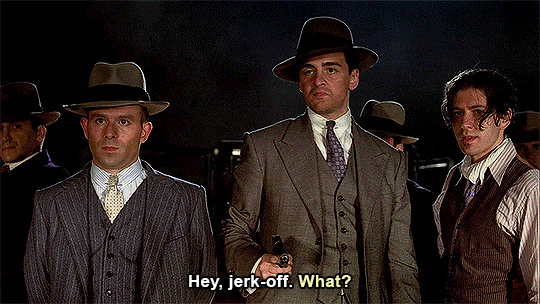


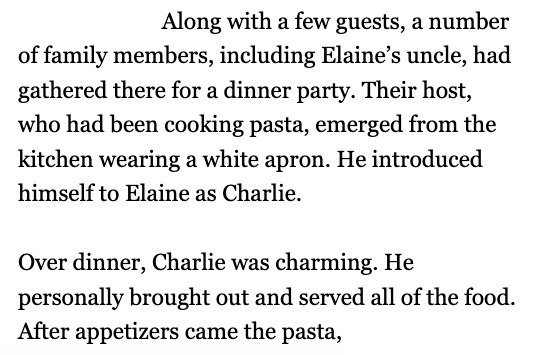

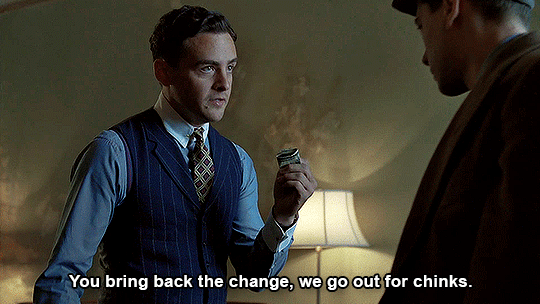
FOOD IS SYMBOLIC OF LOVE
1. Christopher Citro || 2. Boardwalk Empire “Two Imposters” 3x11 || 3. Charlie Luciano, quoted in The Last Testament of Lucky Luciano by Martin A. Gosch || 4. Boardwalk Empire “Friendless Child” 5x7 || 5. Alan D. Wolfelt || 6. Boardwalk Empire “Friendless Child” 5x7 || 7. Why Do We Admire Mobsters? by Maria Konnikova, The New Yorker || 8. Boardwalk Empire “Bone For Tuna” 3x3
all gifs by @fancykraken
103 notes
·
View notes
Text

“You come right over here and explain why they are having another year.”
Dorothy Parker to Robert Benchley, December 31, 1929. Happy New Year! (Maria Konnikova on bluesky)
4 notes
·
View notes
Text

Robert Downey Jr will perform at the SXSW Film Festival, which will be held March 10-19 in Austin. #SXSW2023.
On March 11, he will speak at the session "Cybercrime: An American Crisis" (Online Crime: An American Crisis). He will be accompanied by Russian-American writer Maria Konnikova, former FBI officer Eric O'Neill and Aura CEO Hari Ravichandran.
11 notes
·
View notes
Text
Time Traveller
“Our memory is and always will be as good as time travel gets, and in the meantime time will do the travelling for us.”
~Maria Konnikova.
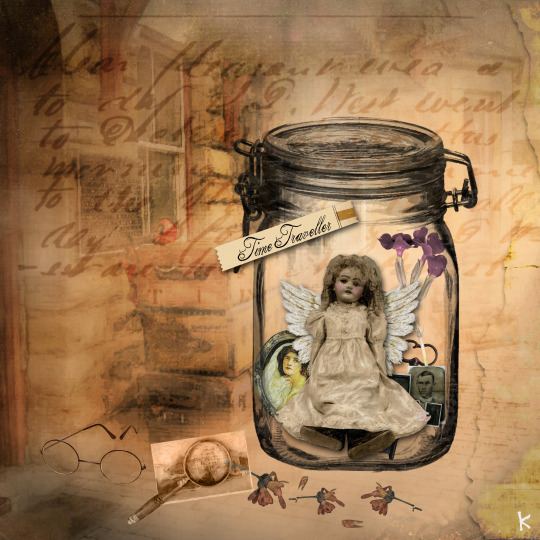
View On WordPress
5 notes
·
View notes
Text
Healing With Storytelling
"They look into your soul, they see what you're missing, and they take advantage of that..."
"For a con artist, deception is a constant practice...they aren't delusional; they're doing it very deliberately..."
"All con artists always return to conning... they're really personable and fun...they have an explanation for everything..."
These are all pieces of interview quotes from psychologist (and poker player) Maria Konnikova from the documentary FyreFraud.
J and I (mostly I) have been on and off watching programming and listening to podcasts about scams and cults for the past several years. We watched FyreFraud and The Inventor, the documentary about the Theranos scandal before basketball games the past couple days. And for the past couple of days, the media has really been helping me feel better. And media has always helped me feel better.
A couple days ago, as I did housework, I was listening to a podcast about emotional abuse and one episode was about abusive parents, and one was about a cult situation, and each of those people talked about how seeing something on television helped them heal and gave them hope and showed them that the situation they were in wasn't right. The person with abusive parents said that watching Full House and how Danny Tanner parented his fictional kids showed her that it was possible for a parent to love and listen to and be attentive and kind with their kids. She even said, "I thought maybe this only happens on sitcoms/TV," and it's not real, but then she began to see hints of Danny Tanner in her friends' parents and her teachers and neighbors. The podcast hosts sort of half jestingly said they wondered if Bob Saget knew he helped someone see their life could be better. He probably didn't, but I bet the podcast guest isn't the only kid he helped, and as corny as that show is, or so many fictional stories about families are, I think they do help a lot of people have hope for better days ahead and better relationships.
And the person in the cult situation said they truly didn't see the cult behavior and structure in the organization they were involved with until they saw Leah Remini's nonfiction series about scientology and saw the similarities. They actually openly thanked Leah Remini for telling the stories.
Storytelling, both fiction and honest nonfiction, does heal people. Personally, I've always found it a lot easier to have compassion and care and be moved to justice and kindness for other people than I have for myself. Storytelling has always allowed me to see myself in other people, and made it easier to have compassion for myself. Like the person gaining insight and hope from Full House, I felt that too as a girl, reading books and watching films and shows about loyal friends and attentive parents and patient romance. And I solve problems and create happy endings when I tell the stories I create too. I hope it helps people. Even if they think I'm corny like Full House.
Those quotes from the FyreFraud documentary at the top made me realize that what I'd probably experienced throughout late 2021 and 2022 wasn't a tragic shift in someone's addiction or mental illness. It was a scam. A con. And they'll be back conning now with new marks, I'm sure. I certainly never would have bought in for thousands of dollars for a tropical island luxury concert festival, or investing in a medical tech start up, but those films did help me see what I did experience for what it was and how carefully crafted con artists can be. They can target you specifically with what they've gleaned will make you trust them. I'm not even a very trusting person. In fact, I'm notoriously socially cautious and skeptical. But they still got me by telling the exact right lies and deflecting any doubts in the exact right ways for over a year. I'm grateful for this storytelling. And I'm grateful for Not Dead Yet and Bob's Burgers and Animal Control for humor and affection and silliness and sentiment too. I need storytelling to heal, and I'm hoping to write new stories soon that hopefully help other people heal too.
#personal#storytelling and feeling better#still working through a lot of stuff but at least I feel like I'm on the upswing#yeah I'm binge consuming scams and cults but I guess that's how I'm dealing with liars at the moment
5 notes
·
View notes
Note
Sherlock Holmes is knowledgeable in many topics other than deduction (it aids his skills). I’ve noticed many articles telling us to research too but what should we research?
So according to Dr Maria Konnikova in her "Lessons from Sherlock Holmes" blog post series and her book "Mastermind How to think like Sherlock Holmes," there are three things that are needed to be a good detective in Holmes' eyes; Good reasoning skills (often umbrella termed as deduction), a good knowledge base on what to found these reasonings on, and imagination to solve the more complex problems.
Your knowledge base should be tailored to what suits your life best, but if your keen to follow in Holmes' footsteps then it would probably start with some level of forensic sciences - it's common for Holmes to discuss different soils and their properties and how they relate to different industries or locations. This sort of information has been characterized by geo-scientists for years, and have been put into a database for police usage by Professor Lorna Dawson at the James Hutton institute.
If we take notes from Holmes' inspiration, Dr. Joseph Bell, then an understanding of maladies and symptoms may be handy when working in the medical profession. Resources on finger nails alone can reveal information on someone's recent nutrition history, smoking habits, and blood flow.
Becoming aware of the modern advances in your fields also allows you to stay ahead of the game. Holmes was fully aware that keeping knowledge accessible was far more important and realistic than storing it all, even with the method of loci. The important thing is knowing what questions you need to ask.
A nice discussion on historical cases and scientific developments surround Holmes is the book "The Science of Sherlock Holmes: From Baskerville Hall to the Valley of Fear, the Real Forensics Behind the Great Detective's Greatest Cases" by E.J. Wagner: I read it a few years ago and found it very entertaining.
The knowledge of Holmes was adaptable by Conan-Doyle based on whatever case the sleuth found himself on so its purely a limit of your imagination as to what things you could research, but often times mud tracks of shoes, animals, or carriages would feature in his stories, so its a decent place to start - types of shoes, types of tyres, depths of tracks and depths of imprints - does it change with soil type? Keep asking questions and keep seeking answers!
17 notes
·
View notes
Text
I have been very mindless my entire life. It's an obvious disadvantage for me because I'm still a student who seeks comfortable company from all these annoying human around me. And growing up, I also have no idea what's my purpose, seeking reasons why I do what I do today. Not until I met this man.
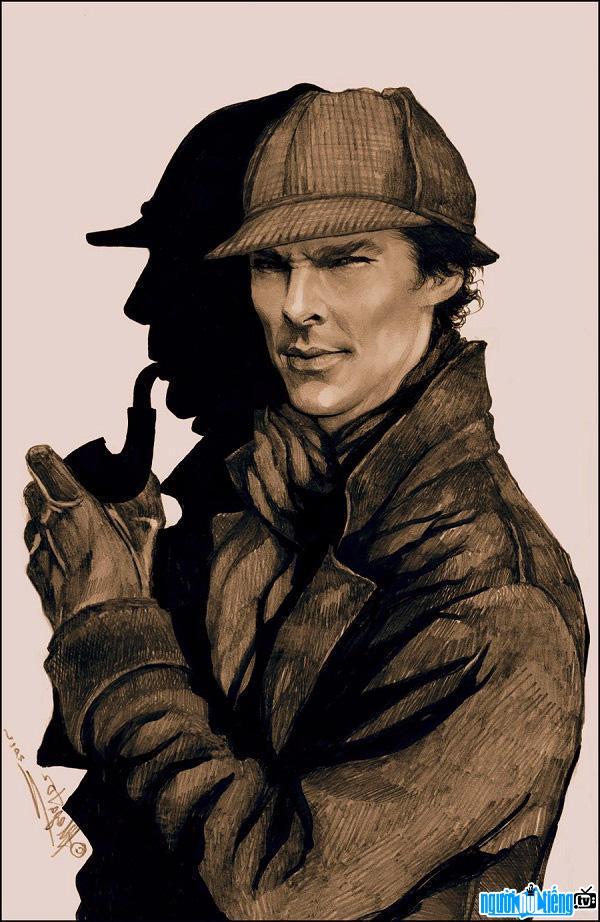
Sherlock Holmes is one of those fictional characters who are very famous until today. He was originally created by Mr. Arthur Conan Doyle during the late 1800's. And for me, he dominated my idea and perception about criminal investigations nd how people in that area works.
The overwhelming intelligent of this character is very obvious when I first started to read the novel. His colleague, Dr. John Watson, who he first encountered in the story A Study In Scarlet stated how Holmes is very selected when it comes to gaining knowledge. He even made a description of what his opinion about his friend. And overtime, they developed they're friendship and intimacy, they become comfortable with each other. This makes Dr. Watson to be more attached to Holmes and his work as a consultant detective.
The author, Mr. Arthur Conan Doyle, actually stated that Mr. Holmes was inspired my a Scottish surgeon and medical lecturer named Joseph Bell. Joseph Bell was said to be an observant man. He can read a person's illness before he even say something. He can also tell which city in London they live in, just from the mud on their shoes. And it's obviously because he obtained that expertise for observation and reasoning because of his career. Who wouldn't be expert at reading people when you spent your whole life dealing with them? So this leads me to conclude that even if we can't really obtain, totally, Holmes' skill set, it is possible to master the faculty of reading people and other trail of reasoning that can be supported by observation.
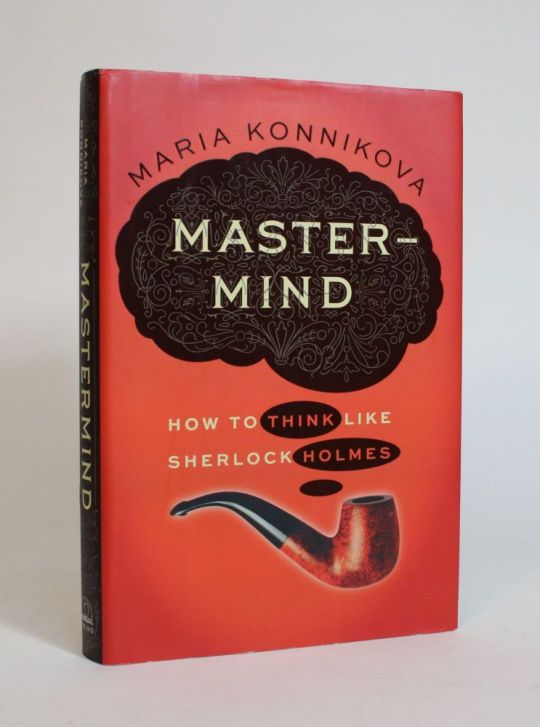

One of my most favourite books is the Mastermind: How To Think Like Sherlock Holmes by Maria Konnikova. This is the first book that teached me to mindful as possible and the it also introduced the field of reasonings. She also mentioned that it is important to be selective with your knowledge that you can use in the future. The human brain is very finite. It can only be attentive at one thing at a time. This is why we should never abuse our capability as humans. So if your interested into the world of reasoning that Sherlock Holmes once entered, this is a highly recommended book for beginning your journey.

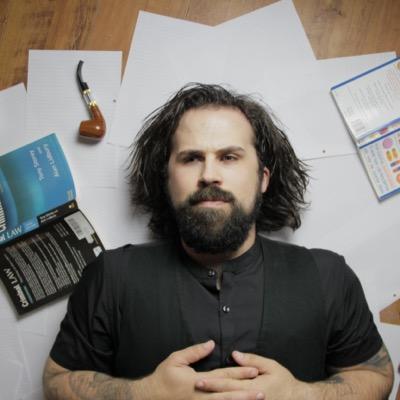
This book also helped me a lot with deduction and people reading. It deals more about the application and how to train your mindfulness and memory to be efficient in the field. This book is called The Monographs: by Ben Cardall. A very helpful book for beginners and experienced investigators alike. This is one of those books that I hoped I can buy today. But fortunately, it has a digital version. If you wanted to be really obtain some knowledge about deduction, kindly go to Ben's Youtube channel and watch his videos, and even listen to his podcasts sometimes. And I promise you, it can help you a lot in the field. Mr. Cardall has been studying Sherlock Holmes' skill set to the fullest. So it's no wonder he's an expert now in the field of deduction.
All these things are just some small aspects of deduction. This may help us improve the skill we need to obtain, but we need time and effort to do so. When I started to enter into this world, I thought I can never obtain this goal, not until I saw Ben Cardall's channel. I thought to myself ' if my fellow human can do this, maybe I can too'. It helped me a lot with improving myself and the skill I wanted. So if you're reading this right now sir, I just wanted to thank you how much you changed my life. I'll just hope your well being and health. I also hope you can teach a lot of people in the world how to pratice and utilize this skill for our own good, and for the peiple around us.
Obtaining a skill takes a lot of time and effort. But even we only have a small community, by working together, we can succed.
- LW
5 notes
·
View notes
Text
3 cele mai bune cărți despre jocurile de cazinou
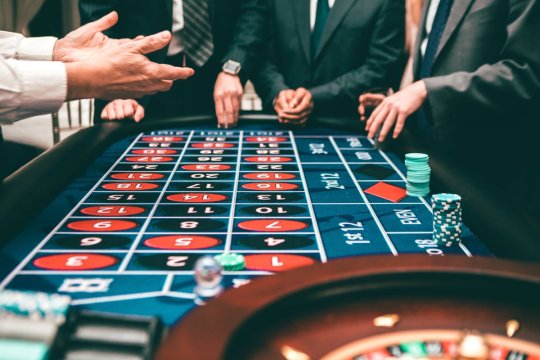
Jocurile de cazinou au prezentat dintotdeauna interes și au stârnit curiozitate. Pe parcursul timpului au fost dezvoltate diferite strategii, iar oamenii au observat că nu este o chestiune care să țină exclusiv de noroc și instinct sau inspirație.
De aceea există numeroase titluri faimoase scrise de oameni specializați în acest domeniu, menite să ajute sau să ofere perspective atât pasionaților, cât și oamenilor care pur și simplu doresc să afle mai mult din ce se află în spatele cortinei atunci când vine vorba de cazinouri.
Să fie oare norocul principalul aspect sau ne putem baza totuși pe anumite calcule matematice care să determine probabilitatea unui anumit rezultat? Vom discuta în continuare câteva titluri care au dezbătut acest subiect și autori care au împărtășit din experiența personală cele mai bune modalități către succes.
Ce titluri sunt potrivite pentru începători?
Desigur că există o varietate de cărți din care puteți alege pentru a afla trucuri și sfaturi, însă și jocul propriu zis și experiența personală reprezintă o bună metodă de învățare, pentru a vedea ce funcționează pentru dumneavoastră.
Puteți accesa diverse site-uri precum Vlad Cazino online, unde să încercați poker, blackjack, sloturi și multe altele în primul rând pentru a vă alege jocul favorit și în al doilea rând datorită accesibilității. Experiența personală este un început în a vă forma o perspectivă pentru ca, ulterior, să puteți aprofunda domeniul prin cărți precum Teoria Poker-ului, Cacealmaua sau Super Slots Secrets - pentru iubitorii de sloturi care doresc să obțină mai mult din joc.
Cea mai mare cacealma de Maria Konnikova
Maria Konnikova este doctor în psihologie al Universității Columbia și absolventă Harvard. Ea a studiat comportamentele umane și a scris numeroase cărți și articole, unele dintre acestea fiind recunoscute internațional și obținând premii precum Excellence in Science Journalism în anul 2019.
A descoperit prin jocul de poker cum stările emoționale care o destabilizau o conduceau către decizii nefavorabile. Implicit, a descoperit astfel cum să controleze aceste stări pentru rezultate mai bune. Cartea elaborează și dezvăluie descoperirile ei asupra naturii umane și cum acest joc a ajutat-o în a se cunoaște mai bine pe sine, cât și pe adversarii de joc.
Teoria Poker-ului - David Sklansky
Aceasta este o lucrare foarte bine documentată, iar pentru pasionați reprezintă una din scrierile importante deoarece explică faptul că reușita acestui joc nu ține doar de noroc, ci este bazată pe teorii ale probabilităților și număratul cărților.
Pentru cunoscători, acest lucru nu este ceva nou, însă oferă de asemenea practici personale și propria perspectivă în acest joc. Pentru a ajunge la un nivel cât mai înalt este necesară practica și dezvoltarea abilităților de atenție, dar și a gândirii matematice.
Am putea numi această carte un fel de manual al bunelor practici care oferă și tehnici de cunoaștere a adversarilor și utilizare a dezavantajelor în aspecte favorabile pentru fair play.
American Casino Guide de Steve Bourie
Această carte oferă informații despre diferențele dintre cazinouri, ce jocuri merită încercate pentru cele mai valoroase câștiguri, cât și informații despre sloturi pentru miza cea mai profitabilă.
Aflându-se în topul vânzărilor de mai bine de 20 de ani, poți vedea în paginile acesteia perspectiva lui Steve Bourje, un om cu experiență în domeniu care împărtășește din ceea ce a învățat de-a lungul anilor. De asemenea poți afla și informații despre RTP-ul actual al fiecărui cazinou întrucât cartea este actualizată constant.
Ce să rețineți
În urma celor menționate anterior, puteți observa că aceste jocuri au la bază o anumită strategie pe care o putem desluși prin acumularea de noi cunoștințe.
Au existat oameni care și-au dedicat o parte din viață pentru a scrie ceea ce au învățat prin propria experiență - anume că jocurile de cazinou reprezintă, pe lângă șansă, și un bun control al emoțiilor, stăpânire de sine și luarea de decizii potrivite urmând un fir logic.
Read the full article
0 notes